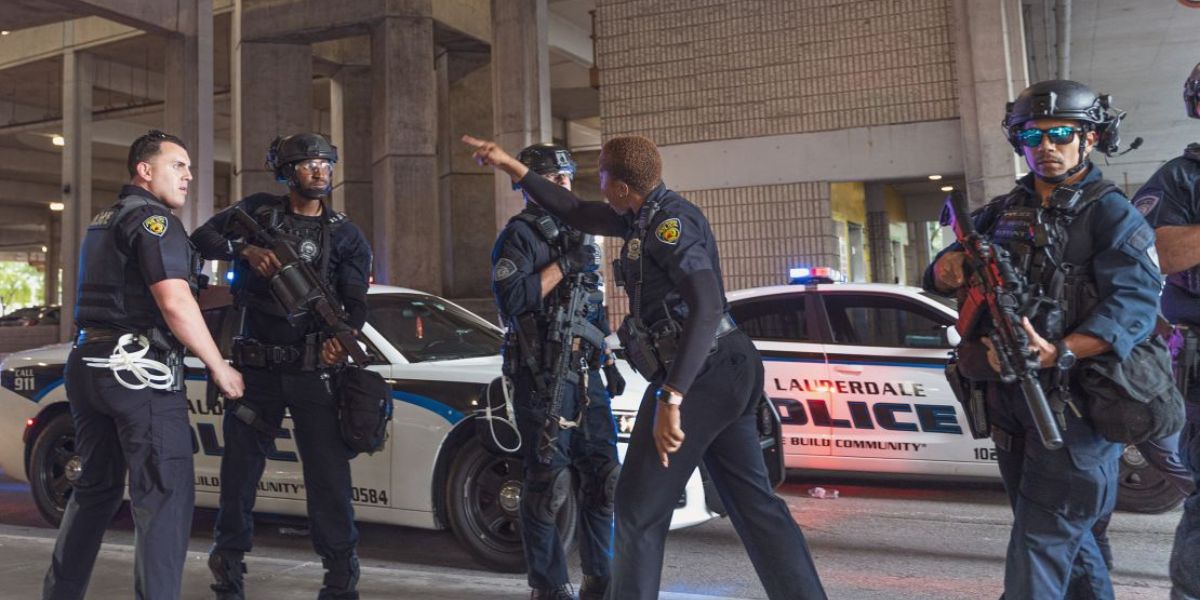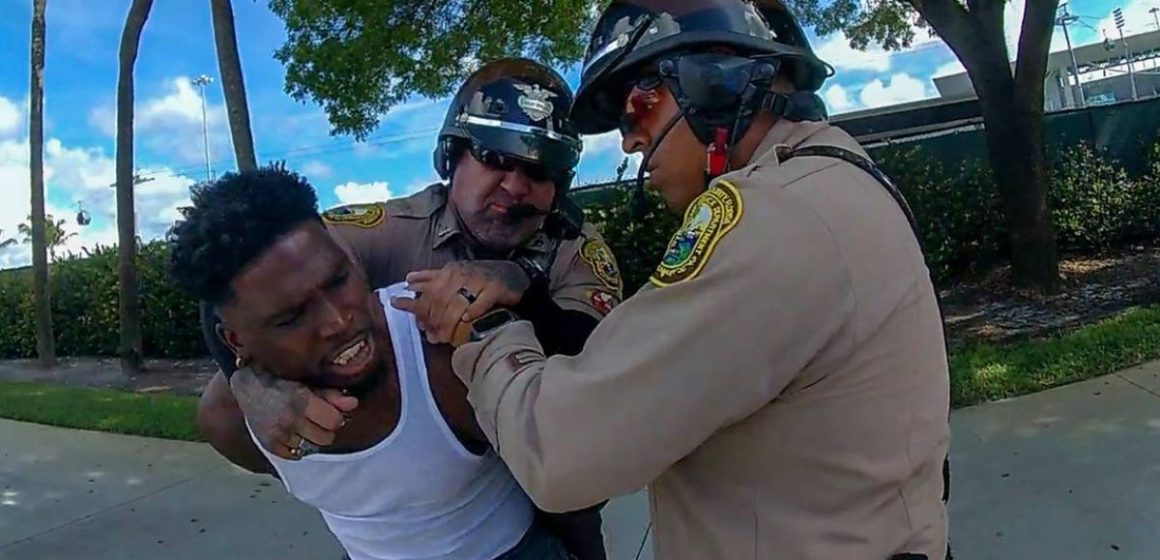Happy New Year. Now, please stand back.
Florida’s new legislation safeguarding first responders from anybody “impeding, threatening, or harassing” them takes effect on January 1.
The new law, known as the “Halo Law,” was signed by Gov. Ron DeSantis in the spring after lawmakers passed it earlier this year.
What the First Responder Law States
Senate Bill 184 requires anyone to remain at least 25 feet apart from a first responder who verbally instructs them to back off while the responder is working.
Under the “Halo Law,” if you refuse to comply with the instruction to move back and are deemed to be harassing or hindering first responders, you may face a second-degree misdemeanor prosecution.
The charge carries a maximum sentence of 60 days in prison. You could potentially be fined $500.

“Harass,” according to the latest law’s definition, means to “willfully engage in a course of conduct directed at a first responder which intentionally causes substantial emotional distress in that first responder and serves no legitimate purpose.”
Who are the First Responders?
A “first responder” is defined by the legislation as a law enforcement officer, a correctional probation officer, a firefighter, or an emergency medical care provider.
Reaction to the New Law
Some law enforcement authorities have praised the new buffer zone law.
“You can video law enforcement officers, that’s your constitutional right,” Polk County Sheriff Grady Judd, who supports the new law, told NBC6. “But you’ve got to stay out of their way while they’re doing their jobs.”
However, the ACLU’s Florida branch opposes the law because its members fear it would punish bystanders and allow police to protect themselves from public scrutiny.
“SB 184 has nothing to do with what its title suggests,” the American Civil Liberties Union of Florida stated online. “The purpose of this measure is to prevent bystanders from seeing an officer’s excessive use of force and recording such photos on their cell phone or other device for the public to see. The goal and effect of this measure are to reduce police transparency and accountability by guaranteeing that there are no eyewitnesses or documented proof of disproportionate use of force.”
Videos of Cops Handcuffing Tyreek Hill Sparked Uproar
Several people on their way to the Miami Dolphins’ season opener in September captured and shared videos on social media depicting Dolphin wide receiver Tyreek Hill in an altercation with Miami-Dade police just outside Hard Rock Stadium in Miami Gardens.
Miami-Dade police ordered Hill, who was on his way to the Jacksonville Jaguars game, out of his black McLaren 720 S and detained him on the ground next to his sports car. Officers claimed they stopped him for speeding. Officers cuffed and pinned Hill to the ground, as seen on videos.
After the public’s films went viral, police swiftly revealed body camera footage of Officer Danny Torres dragging Hill by the back of his head from his car, forcing him to the ground with a knee, and handcuffing him. Torres was put on paid administrative leave.
The Dolphins star’s two penalties — a $129 fine for a seat belt violation and a $179 punishment for sloppy driving — were dismissed in November after the ticketing officer, Manuel Batista, failed to appear in court.



Leave a Reply